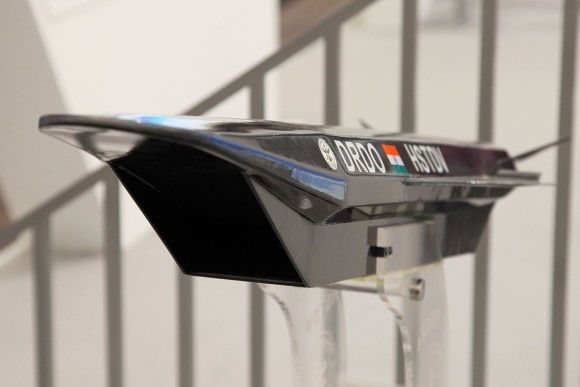- WIADOMOŚCI
- ANALIZA
NATO Summit In Warsaw - Current Priorities - Report
NATO summit in Warsaw, scheduled to take place in July, may be the most important event organized since the end of the Cold War, as it is going to define the prospective direction of development for the alliance, for which Russia, now, is defined as the number one challenge. However, as it was announced to the Polish researchers and analysts at the NATO HQ, not only is the organization interested in the Eastern Flank, but also in the southern, northern, and western dimensions.
NATO Public Diplomacy Division has organized a working meeting for a group of the Polish experts, the goal of which was to get them acquainted with the current set of priorities and scale of works undertaken in direct connection with the NATO summit in Warsaw, which is planned to take place between 8th and 9th July 2016. At the moment, this is the most important event for which NATO needs to get ready. In practical terms, though, we need to remember that the events taking place on 14th and 15th June have a value which is even higher, since then Defence Ministers of the member states are going to meet up then, making decisions, on behalf of their governments, which are going to be publicized later, during the Warsaw summit.
Goals – Before Warsaw
What’s understandable, Russia was the burning issue during the meeting with the Polish analysts. NATO officials define Moscow as “determined and aggressive”. It was confirmed that the Kremlin is going to be one of the hot topics covered during the talks in Warsaw. There, the steps undertaken by Russia are going to be analysed, both in the political, as well as in the military dimension.
However, it is clearly visible that, among the member states, a conflict of interest and approaches towards Russia exists. Even though stance adopted by the Central European states, including Poland, Lithuania, Latvia and Estonia, is well defined, other nations are still hoping for a normalisation of the relationship with Moscow to be possible, as the time passes.
In Brussels it is stressed that the crisis will eventually come to an end, and that talks with Russia are a must, however, they must be carried out from a position of strength, without exhibiting any weakness. In the light of the above, the Warsaw summit shall also be focused on the direction of expenditure, which has recently been hampered. We do not know whether the upcoming summit will lead to any decisions, since the European states look up to the United States, and there, the bureaucracy is awaiting the presidential election, the result of which will also have an impact on NATO, in a longer run.
When it comes to Russia, meeting of the NATO Council – Russia is expected to happen before the Warsaw Summit. NATO is willing to maintain the political channels of dialogue with Russia, in order to avoid any understatements. Nonetheless, working dialogue and collaboration are ruled out. Besides that, during the Warsaw Summit, the analysis and discussion will also take place in connection with the bolstered NATO presence on the Eastern Flank, and higher flexibility, when it comes to facing the ICT threats and hybrid warfare.
What is more, it is expected that a decision will be made in Warsaw, regarding the key capabilities required for effective functioning of the NATO alliance. Not only is this related to the new capabilities, in the areas of air refuelling or reconnaissance systems, but the issue is also connected to restoration of the capabilities that were available some time ago, including the ones related to allied operations, carried out at division or corps level. After the Cold War came to an end, a large portion of forces which were to be used in a potential defence operation was disbanded. At the same time, the NATO territory has been significantly expanded. NATO would like to increase interoperability among the variety of armies, some of which are very minute.
Warsaw Summit is going to define the future military directions for NATO, and transition phase assumptions. This phase is a result of the Russian aggression against Ukraine, during which NATO decided to increase the level of security for the Central-Eastern European states. During the next phase, NATO is going to expand and reinforce its deterrence potential. The operations in question are related to so called framework nations which are going to take most of responsibility for creating and maintaining relevant capabilities, according to the arrangements made during the 2014 Newport summit. However, this also means that a high level of responsibility is going to be imposed on the framework nations, who are obliged to, should such need arise, provide the required forces and assets that may be missing.
Another issue which is going to be covered is the process of maintaining the effective thermonuclear deterrence, both in tactical, as well as in strategic dimension. The 1999 strategic concept considered the nuclear weaponry as one of the cornerstones of military deterrence. The 2010 doctrine still stressed the nuclear profile of the NATO alliance. No changes should be expected within that scope.
Constructing the Stability
NATO stresses the fact that, within the area of creating the strategic depth, critical role is played by the activities, the aim of which is to create and maintain stability of the borders.
The most important element of the strategy is seen in training of the Iraqi officers. In May 2016, NATO Secretary General, Jens Stoltenberg, announced that a team is going to be sent to Iraq, whose task would be to assess the needs of the Iraqis and the security status (should the NATO training camps be endangered, additional protection forces would be required, expanding the deployment quantitatively, and cost-wise, high risk also amplifies the potential political costs). The decision to send such group to Iraq is a result of the request placed formally by the Iraqii PM, Haider al-Abadi, asking the NATO alliance to expand its operational presence in Iraq. When it comes to actions directed against the so called ISIS, combat deployments have been – at least so far – ruled out. NATO member states are only deliberating deployment of the AWACS aircraft and non-combat involvement, but even such idea meets little euphoric endorsement and support in Brussels. The most probable scenario is seen in deployment of, besides the training and advisory personnel, EOD units, for neutralizing the areas left by the IS, within the scope of presence of the explosives, scattered within the terrain in question.
Secondly, NATO is also willing to continue its collaboration with Tunisia and Jordan. Both states are pro-West and mildly endangered by the Islamic terrorism. Both these countries also participate in the NATO Mediterranean dialogue. In April, the first group of Iraqi personnel has begun its training course in Jordan. It is planned that until the end of 2016, 350 Iraqi officers would be trained in Jordan, within the scope of battlefield medicine, civil and military planning and IED neutralization.
Thirdly, NATO expressed its readiness to support Libya. The unstable situation in Northern Africa and lack of strong, centralized government which could ask NATO for help and reconstruction of the security sector both constitute and remain a serious problem. At the moment, we know that a Libyan delegation is going to be sent to Brussels, in order to initiate talks related to potential collaboration.
What is more, NATO is going to show more involvement in the operations against the human trafficking activities in the Aegean region. Exact shape of the mission is unknown. Discussions covering the profile of the operation, as well as the deployments, are troublesome, taking into account the minute size of the basin and tense relations between Greece and Turkey. In this area, close collaboration with the EU, realizing the “Sofia” operation in the region, is also required. Probably, the “Active Endeavour” operation, initiated after 9/11 as a counter-terrorism initiative, is going to be expanded. The mission itself poses a problem for Germany, since the “Active Endeavour” operation is based on the provisions of Article 5, which means that authorization is required from the German parliament, annually.
NATO also plans to continue the Afghan deployment, which is also tough and problematic, within the scope of limited funding provided for the Afghan army, with Taliban forces growing stronger. At the moment, significant monetary assets are needed to provide funding for the local units of army and police, during the period between 2017 and 2022. NATO is going to maintain its advisory and support role. However, the option in which repeated deployment of combat units is executed is ruled out. This issue is also going to be thoroughly covered in Warsaw.
What is more, cooperation with Georgia, Ukraine, Moldavia, Finland and Sweden is expected to be continued, after the Warsaw summit, according to the current declarations. When it comes to Ukraine, no breakthrough should be expected. NATO has offered its assistance in reforming the security sector, however, the initiative itself must be undertaken by Kiev. Ukraine is not realizing the required reforms. When it comes to the northern direction, the northern states are getting more and more involved in the NATO exercises. Both states are making contribution to the analyses of the Baltic basin. Cooperation within the fields of intelligence, politics and military involvement exists.
However, no official plans seeing the above states becoming NATO members exist at the moment. Montenegro remains the sole official candidate. The door for this country is open, and relevant invitation has been sent back in December 2015. The country may become a NATO member state, should it meet all of the defined requirements, and should no veto power be exercised by any of the current member states. The agreement with Montenegro also needs to be ratified by the national parliaments.
Probably, in the nearest future, cooperation with Israel is going to be tightened, since the country has been recently invited to establish a representation office at the NATO HQ. Israeli PM, Benjamin Netanjahu, has recently invited the NATO Secretary General to visit Jerusalem.
NATO 360 Degrees
As it is stressed above, Poland views the Eastern Flank as the most important area to be discussed. Nonetheless, during the dialogue with the NATO representatives, a message and narrative may be seen, according to which NATO is promoting the 360 degrees alliance concept, which means that the organization should be ready to act against potential threat at each of the borders. Southern countries are more interested in reinforcing the southern NATO border, while the Russian threat raises the degree of interest given to the northern dimension. What’s interesting, more and more opinions emerge pertaining to the fact that a NATO western flank began to exist, which is related to the Russian funding for the far right political parties in the Western Europe. The above process and related phenomena are seen, at least by some analysts, as a growing threat.
In order to face the spectrum of threats which is entirely different from the one which existed during the Cold War, the NATO representatives expect that collaboration with the European Union is also going to be tightened, as a result of the Summit in Warsaw. NATO would like to take three decisions within that scope during the upcoming event. First, the officials expect that a joint stance is going to be announced, including a declaration of will to implement joint counter-terrorism operations, and activities which would neutralize hybrid, naval and ICT threat areas. Secondly, NATO would like clear framework and rules and principles of cooperation to be adopted, so that, should a hybrid threat arise, the reaction schemes are already in place, waiting for practical implementation. Thirdly, joint exercises involving the EU and NATO, focused on hybrid warfare, are planned and assumed to be organized.
What’s next?
The Warsaw summit may be a breakthrough, should the representatives of the NATO member states be able to make relevant decisions on time. On the other hand, it should not expected that a new strategic concept would be adopted. Now it is said that another summit, probably in Brussels, could take place as early as next year.
Robert Czulda
















